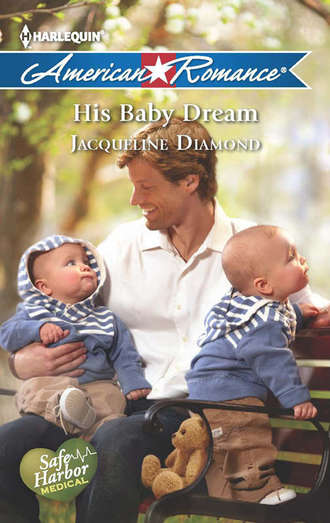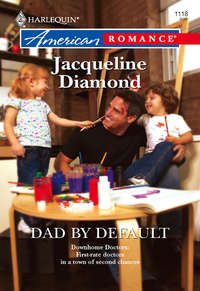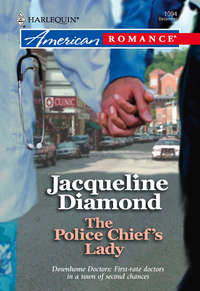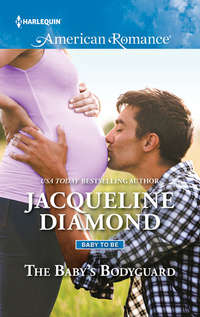
Полная версия
His Baby Dream

Determined To Be A Dad
Biology teacher Peter Gladstone may have lost his beloved wife, but the tragedy only strengthened his resolve to create a family. With a donor egg and a surrogate mom, Peter is sure to be a proud papa soon, thanks to the fertility specialists at Safe Harbor Medical.
Harper Anthony seems like the perfect choice for the donor. She’s smart, beautiful and a great mom to her young daughter. The problem is, Peter has recently become reacquainted with the young widow and now sees her as a friend—or maybe something more than a friend. And Peter has chosen to keep his identity a secret. If the truth comes out, the consequences may threaten their budding romance. But only the truth can turn them into a family….
“Let me tell you my dream.”
Peter reminded himself to breathe. “Please do.”
“It’s a real dream.” Harper ducked her head. “I mean, it’s not a wish or a fantasy, it’s something that comes to me while I’m sleeping. Over and over.”
With no idea where this might be heading, he merely waited.
“I’m out in a field.” Harper studied her clasped hands. They were pretty hands, with long tapered fingers and lightly polished nails. She’d moved her wedding ring to the right side, he noted. “There are two boys playing. Sometimes they’re toddlers. Other times, they might be five or six.”
“Two boys?” he repeated.
A quick nod. “There’s a shadowy figure playing with them. A man, but I can’t make out his face. They’re playing catch, or tag—it varies.”
“I see.” But he didn’t.
“Nobody realizes I’m there, and I think that’s because I’m not.” Although tears glittered on her lashes, Harper met Peter’s gaze squarely. “I have the sense that I’m meant to give them life. That’s all. They won’t be my sons. They’re supposed to be born and I’m supposed to make that happen.”
“And let them go.”
“Exactly.”
Dear Reader,
Not many years ago, the notion of achieving parenthood through egg donations and surrogates lay in the realm of science fiction. Today the opportunity exists for a widower like high school biology teacher Peter Gladstone to have longed-for children.
No wife? At Safe Harbor Medical Center, that’s no obstacle. A fertility issue of his own? No obstacle there either.
But Peter does have one problem: choosing the woman who will be the genetic mother of his child or children. Although all the donors at Safe Harbor have been screened, she’ll still be a stranger.
When an unexpected opportunity presents itself, he’s torn. Harper Anthony, a nurse who’s the widow of a former colleague of Peter’s, is listed among the donors. She’s attractive, intelligent and a wonderful mom to her six-year-old daughter.
If he picks her, is it ethical to keep his identity a secret? Perhaps so, except that he’s teaching her daughter in a summer sports program and keeps connecting with Harper. The closer they become, the stronger his dilemma.
I hope you’ll join Peter and Harper, and share their journey with them!
Best,
Jacqueline Diamond
His Baby Dream
Jacqueline Diamond

ABOUT THE AUTHOR
The author of more than ninety romances, mysteries, Regencies and paranormals, Jacqueline Diamond lives in Orange County, California, with her husband of more than thirty years. Writing about a fertility program at a medical center draws on Jackie’s long-standing interest in medicine, which began when her father, then the only doctor in the small Texas town of Menard, delivered her at home. You can learn more about the Safe Harbor Medical series at www.jacquelinediamond.com and keep up to date with Jackie at her Facebook site, JacquelineDiamondAuthor.
Contents
Chapter One
Chapter Two
Chapter Three
Chapter Four
Chapter Five
Chapter Six
Chapter Seven
Chapter Eight
Chapter Nine
Chapter Ten
Chapter Eleven
Chapter Twelve
Chapter Thirteen
Chapter Fourteen
Chapter Fifteen
Chapter Sixteen
Chapter Seventeen
Chapter Eighteen
Chapter Nineteen
Excerpt
Chapter One
Glancing up from his clipboard across the shouting, seething crowd of children and parents half filling the community college gym, Peter Gladstone spotted the woman with an eerie jolt of recognition. For an instant, the entire scene froze.
Taller than most of the moms, she moved toward him with easy grace, her soft, short chestnut hair framing an animated face. His chest squeezed. She reminded him so much of Angela.
Jerking himself out of his daze, Peter noted the little girl hanging on to her left hand and the little boy trying to pull free on the right. “Can I help you?” he asked as they reached him.
“I’m sorry to bother you, Peter.” From her tone and use of his first name, she obviously knew him. And he had seen her before, so why couldn’t he place her? He certainly ought to remember a woman who bore such a marked resemblance to his late wife. Perhaps he’d met her last summer here at Safe Harbor Sports Camp, but he had a strong sense that he knew her from somewhere else.
“It’s no bother.” He strove for polite words to obscure the fact that he’d forgotten who she was. “The first day is always chaotic.”
“It sure is a madhouse.” Up close, she had beautiful green eyes and a smile that hinted of mischief. “Must be tough adjusting to all these little kids.”
“It’s quite a change.” For most of the year, Peter taught high school biology, as she apparently knew. During the summers, he earned extra income as assistant director of this sports program.
Mercifully, a name on the clipboard jumped out at him. Mia Anthony, age six. The listed parent was Harper Anthony. Occupation: nurse. Now he placed her—the widow of Sean Anthony, a fellow teacher with whom he used to coach wrestling after school. Her appearance had changed in the past few years, he reflected, studying her.
“It’s the hair,” Harper said.
“Excuse me?”
“You were trying to place me. I just got my hair cut,” she explained. “Used to be long.”
“I remember.” Finally.
Behind her, a woman approached with a little girl. “Bathroom?” she inquired frantically.
He pointed toward the exit. “Down the hall on the right.”
As they departed, Peter gazed around the room, making sure the college-age counselors were correctly grouping the kids under the banners marking off the grade levels. Kindergarten through second-graders were assembling by the bleachers on one side, third- through fifth-graders on the other and sixth through eighth under a basketball hoop.
The camp had been established for dual purposes. It gave college students summer jobs working with kids, developing job skills and preparing for careers in education. It also provided half- and full-day programs that kept children active during the vacation months.
“Reggie, hold on!” Harper tightened her grip on the little boy. “This is Reggie Cavill. He’s the son of a friend. Well, the nephew, actually—long story. Anyway, Adrienne works an overnight shift so I brought him this morning. I want to be sure he’s registered.”
“Did his aunt complete the form online?”
“I think so.”
Peter found the name Cavill, Reginald, on his list, along with his age, five, and Dr. Adrienne Cavill, obstetrician, listed as guardian. “Everything’s in order.”
“I was wondering if he and Mia could be placed in different groups.” Harper shook her bangs out of her eyes. “They’re almost like brother and sister, so they tend to squabble.”
“Thanks for letting me know.” He jotted down the information. “We do divide the kids into smaller groups for some activities. I’ll make sure they’re separated.”
Reggie stopped squirming to stare at Peter. He was a cute little guy with short blond hair and two missing teeth. “Are you, like, a coach?”
“I am,” Peter said. “Do you have a favorite sport?”
“Eating,” Mia piped up. “And smearing it all over his face.”
“Shut up!” The little boy feinted around Harper and gave her a shove, which Mia deflected with a well-timed turn of the shoulder.
Catching the boy’s arm gently but firmly, Peter drew him away. “At sports camp, treating other people with respect is an important part of athletics. We don’t hit, push or kick.”
“She made fun of me!”
Peter fixed Mia with a serious expression. “When we treat people with respect, they respect us in turn. So we don’t use insults, either.”
“Even if they’re true?” she asked.
He fought to hide his amusement. “Even if we think they’re true.”
“Thank you.” Harper regarded him appreciatively. “It’s hard for kids to grow up without a father. Being here will do them good.”
“I’m sure it will.” He watched her shepherd the tykes, each with a backpack in place, to their assigned group.
It was kind of her to help a friend’s little boy. Single parents had to band together, especially if they didn’t have close relatives in the area. Peter was grateful that his mother and father lived only half an hour away, since he was contemplating single fatherhood himself.
Suddenly he remembered where he’d seen Harper Anthony recently. Or, rather, seen her photograph.
This evening, after camp, he resolved to take another look. Because today’s chance encounter might turn out to be the answer to a very important question.
* * *
HARPER ALMOST WISHED she hadn’t run into Peter Gladstone that morning. Although of course she’d noticed his name on the sports camp website, she hadn’t thought much about it until she’d stood right in front of him.
His sheer physicality had caught her off guard. That incredible build. Those bright blue eyes. The confident way he held himself. The leashed strength in his voice.
Since her husband died in an off-road vehicle accident three years earlier, Harper had avoided situations that might tempt her to get involved with a man. She didn’t need the complications and had no interest in remarrying.
Although her very normal needs had a way of surfacing, as they’d done today, she recognized the less enjoyable side of involvement, at least for her. Organizing her life around a man, tailoring her activities to his preferences—that might have suited her as a teenager, when she’d first fallen in love, but she was twenty-eight now. And enjoying the chance to live the way she wanted.
Still, suppressing her instincts must have made her vulnerable. Even in that noisy gym, she’d had to struggle to project calmness and control.
Her reaction was ridiculous, Harper reminded herself later as she weighed the next obstetrical patient and escorted her to an examining room. During their marriages, there’d never been any vibes between Harper and Peter Gladstone. He’d seemed devoted to his wife, and while Harper had liked Angela’s sweet personality when they ran into each other—mostly at school functions—she’d found the woman rather passive.
Nothing like Harper’s outspoken, strong-willed friends. Nothing like the self-reliant woman Harper was determined to become, either.
After several years of financial and emotional struggles, she was finally getting her life on track. Five months ago, she’d landed this job as a nurse assisting Dr. Nora Franco in the medical office building next to the hospital. A couple of months later, she’d moved from an apartment into a house where her daughter could have a pet, and now she’d chopped off the long hair that Sean used to love.
She valued the freedom to experiment and make her own choices. What she didn’t need was a guy who, judging by the wife he’d chosen, preferred compliant women.
“You got your hair cut.” The patient, Una Barker, a heavyset woman in her seventh week of pregnancy, sat on the edge of the examining table. “It’s flattering. Practical for summer, too.” She wore her own reddish-brown locks short and tightly curled.
“My daughter’s hair kept getting snarled.” Harper attached the blood pressure cuff. “She refused to cut hers unless I did the same, so here we are. Frankly, I wish I’d done this years ago.”
“I hope one of my twins is a girl,” Una said. “But I’ll be happy as long as they’re healthy.”
Harper moved to the computer terminal to note Una’s blood pressure, which was slightly elevated but within the normal range. “Any problems? Nausea? Back pains?”
“A little queasiness.”
“Is it bothering you now?” The patient might need a few crackers to hold her until lunch. The office kept a supply.
“Not at the moment.” Una indicated a pile of garments at one side. “Should I change into one of those lovely hospital gowns?”
Harper chuckled. While the thin, ill-fitting robes served their purpose, no one liked them. “Not today. Dr. Franco just wants to see how you’re feeling.” Having achieved the first successful pregnancy in Safe Harbor Medical Center’s new egg donor program, Una merited extra attention. Also, carrying twins added to her risk. “She should be in momentarily.”
“Wait—unless you’re in a hurry?” Una interjected.
“Not at all.” Casual conversations allowed patients to bring up symptoms or issues that might otherwise be overlooked. “Is there something else?”
“I hope you don’t mind if I ask how it’s going with you,” the patient said.
“With me?” Harper repeated.
“Stacy mentioned that you were approved as an egg donor.” Una had achieved her pregnancy thanks to a donation from Harper’s close friend and former roommate Stacy Layne, a surgical nurse. Stacy, who’d accidentally become pregnant with triplets the same month as Una, kept in close touch with her fellow mother-to-be. “Have you been chosen by a couple yet?”
“Not yet. I’ve only been on the registry for a week.” The application process had taken several months while Harper underwent medical tests and a psychological evaluation. “I hope the mom and I can be friends like you and Stacy.” Although some parents, and some donors, preferred to remain anonymous, Harper had offered to meet potential recipients in person.
“The preparation really brings you together,” Una said. “I mean, coordinating your menstrual cycles—how personal can you get?”
Harper was looking forward to the experience. She hoped someone chose her soon. “Stacy says she feels closer to you than to her own sister.” Harper didn’t have a sister, just an older brother who lived in New Mexico and hadn’t even friended her on Facebook. So a sisterly relationship would mean a lot.
“Our kids will be half siblings.” Una shifted position on the table. “I’m glad they’ll grow up together.”
“You can move to a chair if you’d be more comfortable.” Harper reached out to help her down.
The patient waved her off. “No, thanks. So, will you tell your little girl about the kids, if—when—there are any?”
“I’ve already talked to Mia.” Harper believed in open communication, to an age-appropriate degree. “She understands that I have this little boy in my dreams. Two of them, actually. It’s like they want to be born. Since I have no desire to marry again, this is a way to give them life.”
“That’s so sweet!” Una declared.
“Plus I love the idea of helping another family.” Harper didn’t mention money, since that wasn’t her primary motivation. The five thousand dollars she’d receive when her eggs were harvested would go straight into Mia’s college fund. Some donors earned more if they were willing to travel to be near the recipient or if they were recruited because of a special characteristic, such as a genius IQ.
A tap sounded on the door. “Ready for me?” Dr. Nora Franco, a blonde who seemed unaware of her movie-star looks, peered in at them.
“Just talking about kids,” Harper told her.
“My favorite subject.” Nora had an eighteen-month-old son with her husband, a police detective.
“Nice talking to you, Una.” Yielding her place to the obstetrician, Harper scooted out.
As she went to summon the next patient from the waiting room, Harper basked in a warm glow, thinking about rescuing those little boys from her dreams. What a miracle if someday they might run and play for real.
* * *
THE FIRST DAY OF SPORTS camp, as Peter had discovered the previous year, brought its share of bumps. Homesick kids, conflicts and acting out, youngsters with a fear of water who resisted swimming, and disorganized parents who arrived late—all were par for the course. It was nearly 7:00 p.m. by the time he collected his car from the faculty parking lot and drove home.
Although this northern part of Safe Harbor, California, lay several miles from the ocean, a sea breeze drifted through his car window. On his left lay a light industrial area, with a shopping plaza on the right. A note clipped to the dashboard reminded Peter to stop for milk and cereal. In his impatience, he ignored it. He had enough supplies to last until tomorrow, anyway.
A few minutes later, he reached a neighborhood of old-fashioned cottages set amid palm trees, firs and jacarandas. Angela had fallen in love with the name of their street, Starbright Lane, even before she saw the fairy-tale cottage with its gingerbread trim, broad front porch and latticed windows.
While Peter might have preferred a modern design, he’d been relieved to discover they could manage the payments on their teachers’ salaries. Room for a home gym, along with a small paved basketball court behind the double-wide garage, had sealed the deal for him. After three years of cramped apartment living, he’d been grateful for the space.
From the garage, Peter carried his laptop case through the connecting door to the green-and-white kitchen. Glass-front cabinets displayed Angela’s flowered dishes and teacups, while the scents of vanilla and orange spice lingered even now, nearly two years after her death. He half expected to see her turn from the stove, greeting him with a smile. Teaching first grade hadn’t dissuaded her from cooking a full meal almost every night, while Peter had handled dishwashing duty.
After setting down the laptop, he cut through the living room to fetch the mail from the front-porch box. Since he did most of his banking and bill paying online, there wasn’t much beyond advertising flyers.
Peter tossed those in the trash and strode down the hallway, past his bedroom and the guest room that they’d planned to convert into a nursery. A knot formed in his chest.
They’d tried to start a family for over a year before consulting a specialist. As one of six children, Angela had expected to conceive easily, and they’d attributed the delay to stress from her busy schedule.
Maybe if they’d gone in earlier, they’d have caught the ovarian cancer soon enough to save her life. The symptoms—bloating, lower back pain, persistent lack of energy—had been so vague that even Angela’s regular doctor hadn’t found them alarming. Only later had they learned that one of her grandmothers had died of ovarian cancer, and an older sister had been diagnosed with breast cancer in her twenties but survived.
Six years of happy marriage had been followed by six months of suffering and pain. Hope would flare at word of an experimental treatment, only to fade. Peter still had trouble believing he’d never again hold his loving wife in his arms.
Only recently had he followed up on another discovery they’d made during their fertility workup: his low sperm count. The doctors he’d originally consulted hadn’t been able to pinpoint the problem. Then, recently, he’d contacted men’s fertility specialist Cole Rattigan, who’d diagnosed Peter with a rare allergy to his own sperm.
According to Dr. Rattigan, his condition shouldn’t stop him from becoming a father. Via a high-tech medical procedure, doctors could inject his sperm directly into an egg.
The chance to cherish a son or daughter from infancy filled him with excitement. He could hardly wait to shower a child with love, and to see the light of understanding dawn as words and concepts became real to that tiny new person.
Peter’s parents, retired teachers who also lived in Orange County, supported his plans. His sister, a lawyer who lived in Maryland, enjoyed her high-power career and didn’t want kids, so when he’d informed his parents of his intention to become a single father, they’d been thrilled. His child or children would grow up with loving grandparents, family holidays and the security of being part of an extended family.
In the den, he opened his laptop and grumbled at the slowness with which it booted up. As soon as it did, he navigated to the fertility program’s website and entered his password.
Despite his eagerness, he went first to the roster of surrogate moms. Dr. Rattigan had suggested that, as a legal precaution, Peter use both an egg donor and a separate surrogate. That way, the woman carrying the baby wasn’t giving birth to her own genetic child and, if she changed her mind about relinquishment, had no legal grounds for claiming custody.
He’d already chosen the woman he would employ, a married homemaker and mother who, during a previous surrogacy, had given birth to a healthy baby girl. Peter reviewed Vanessa’s description and photo, which showed a friendly woman with strawberry-blond hair, above the caption I Love Being Pregnant!
When he’d interviewed her, he’d been impressed by her enthusiasm and good nature. He had no doubt she’d nurture his child, providing a loving start before birth.
The most difficult decision lay ahead. Previously, while studying the profiles of egg donors, he’d been keenly aware that he was choosing a woman to provide half of his child’s genetic makeup. Her personality, her intelligence, her strengths and her weaknesses would strongly influence his future child. While Peter believed in the importance of the home environment, there was no denying the role of heredity.
Unable to make a choice, he’d postponed the decision. Then, today, he’d seen Harper Anthony.
Clicking on the section that listed egg donors, he found her photo at once. The first time he’d viewed it, he’d experienced a vague sense of familiarity, and assumed he must have seen her around town. He hadn’t connected the woman identified only as Mrs. H.A. to his late colleague, nor—given her sweep of long hair—had he been struck by the resemblance to Angela, although he could see it now.
Why was she willing to do this? Peter wondered. Her statement contained the usual remarks about wanting to help others, loving children and treasuring the miracle of life. Perhaps working in the medical profession had influenced her decision.
She offered to meet with prospective recipients. How awkward would that be? Besides, having a woman he knew as the egg donor was asking for trouble, Peter conceded. They would no doubt continue to run into each other after the child was born, and what mom could resist feeling possessive toward her genetic child, even though she hadn’t carried it in her body?
Yet he’d observed what a caring mother Harper was, and he’d taken an immediate liking to her outspoken, bright little girl. This way, his child’s background wouldn’t be such a question mark.
He wouldn’t have to inform her. He’d been assured that he could maintain complete confidentiality if he chose. With the surrogate, that hadn’t seemed important—indeed, Peter wanted to experience the pregnancy with her, to view the ultrasounds and to hear his baby’s heartbeat—but the donor would be out of the picture once the pregnancy became established.










